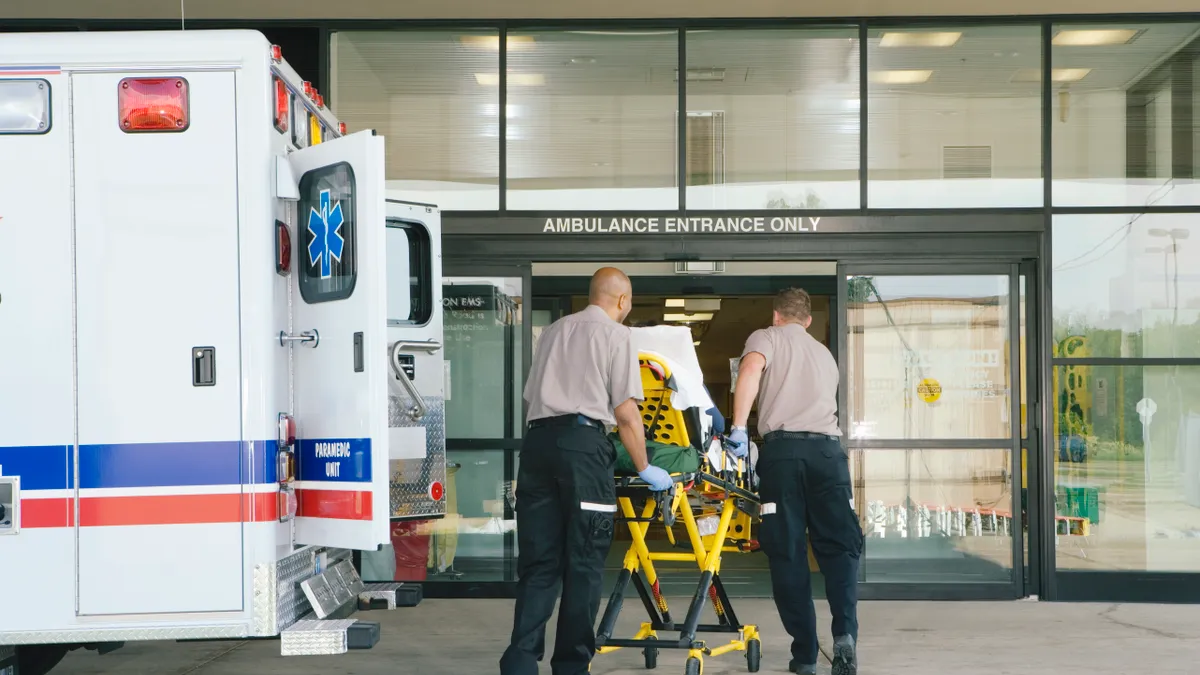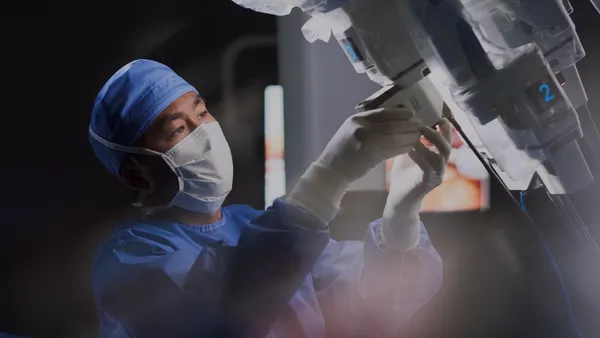Dive Brief:
- The HHS Office of Inspector General on Friday asked for suggestions for potential changes to the Anti-Kickback Statute that could alleviate obstacles to coordinated or value-based care. The request came the same day comments were due to CMS on a similar request for information on ways to improve the Stark Law.
- Medical device manufacturers represented by AdvaMed urged CMS to update the Stark Law, AKS and specific beneficiary provisions of the Civil Monetary Penalty Law, saying duplicative measures are creating "significant impediments" to coordinating care, sharing risk and controlling costs. AdvaMed warned that restrictions on physician-owned distributors are needed to prevent fraud and abuse.
- The American Hospital Association, which has lobbied for changes to the Stark Law, wrote to CMS that while it supports a new value-based payment exception to be created or adapted to allow for coordinated care, no changes should be made to its ban on physician-owned hospitals. But physicians argue that allowing such hospitals will increase competition and potentially lower costs.
Dive Insight:
AdvaMed praised HHS on Friday for its RFI on the anti-kickback law, saying that the trade group has been working with the government to implement two new safe harbors to the AKS for value-based pricing arrangements and value-based warranties. AdvaMed CEO Scott Whitaker says that medtech companies can offer unique bundling of services in value based-care settings if changes are implemented.
"These proposals are intended to allow for clinical performance incentive payments and results-based contracts — between providers, between providers and manufacturers, and between manufacturers and payers — that focus on optimizing patients' clinical outcomes and fostering efficient and cost-effective delivery of care through shared accountability," Whitaker said in a statement.
The Alliance for Integrity in Medicare Coalition, consisting of the American Clinical Lab Association, the Association for Quality Imaging and other physician groups, urged CMS in its comment to strengthen the in-office ancillary services exception to the Stark Law by narrowing which services qualify. The group says that the idea would save Medicare $3.3 billion over 10 years.
"To further encourage physician participation in APMs, we recommend removing advanced diagnostic imaging, anatomic pathology, physical therapy, and radiation therapy services from the list of designed health services protected under the IOAS exception," AIM said.
The group writes that the IOAS exception is meant to allow for non-complex services like X-rays and blood tests to be preformed during an initial appointment, arguing that specialized services require a second visit.
"Allowing these more complicated services to be protected under the IOAS exception does not facilitate greater patient convenience. Rather, the IOAS exception only bolsters the continuation of questionable utilization patterns of these services under FFS," AIM said.
But the American Medical Association argues that the exception "should be preserved and should not be restricted for advanced imaging, radiation therapy, anatomic pathology, and physical therapy."
AMA contends that such services are essential tools for practices. "Limiting the IOASE would impede care coordination, force patients to receive ancillary services in a new and unfamiliar setting, increase inefficiencies, present significant barriers to appropriate screenings and treatments, and make health care both less accessible and less affordable," the group wrote.
AMA also argued that the Stark ban on physician-owned hospitals should be repealed, saying such an action would result in increased competition in an era of hospital mergers and consolidation. The group urged the administration to include such a legislative proposal in its next proposed budget. But AHA maintains that the current ban "is a carefully developed policy that is working as Congress intended."











